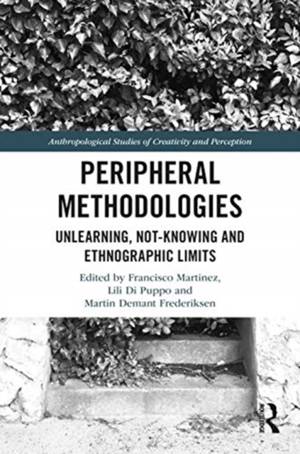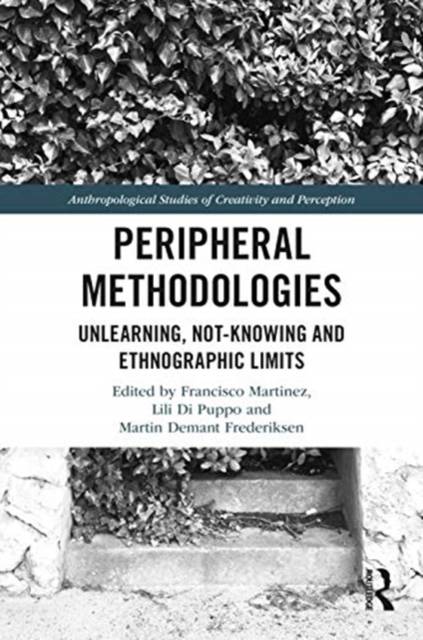
- Retrait gratuit dans votre magasin Club
- 7.000.000 titres dans notre catalogue
- Payer en toute sécurité
- Toujours un magasin près de chez vous
- Retrait gratuit dans votre magasin Club
- 7.000.0000 titres dans notre catalogue
- Payer en toute sécurité
- Toujours un magasin près de chez vous
Peripheral Methodologies
Unlearning, Not-Knowing and Ethnographic Limits
Description
How does peripherality challenge methodology and theory-making? This book examines how the peripheral can be incorporated into ethnographic research, and reflects on what it means to be on the periphery - ontologically and epistemologically. Starting from the premise that clarity and fixity as ideals of modernity prevent us from approaching that which cannot be easily captured and framed into scientific boundaries, the book argues for remaining on the boundary between the known and the unknown in order to surpass this ethnographic limit. Peripheral Methodologies shows that peripherality is not only to be seen as a marginal condition, but rather as a form of theory-making and practice that incorporates reflexivity and experimentation. Instead of domesticating the peripheral, the authors engage in (and insist on) practicing expertise in reverse, unlearning their tools in order to integrate the empirical and analytical otherwise.
Spécifications
Parties prenantes
- Editeur:
Contenu
- Nombre de pages :
- 184
- Langue:
- Anglais
- Collection :
Caractéristiques
- EAN:
- 9781350173071
- Date de parution :
- 28-04-21
- Format:
- Livre relié
- Format numérique:
- Genaaid
- Dimensions :
- 156 mm x 234 mm
- Poids :
- 458 g

Les avis
Nous publions uniquement les avis qui respectent les conditions requises. Consultez nos conditions pour les avis.





